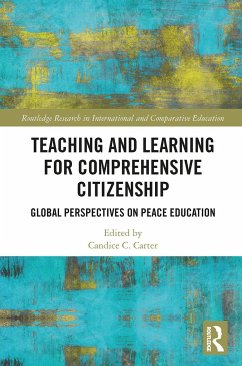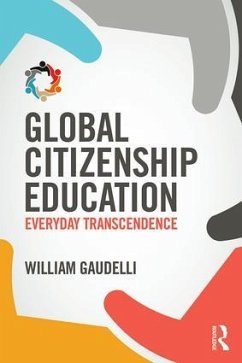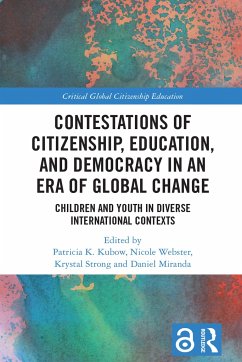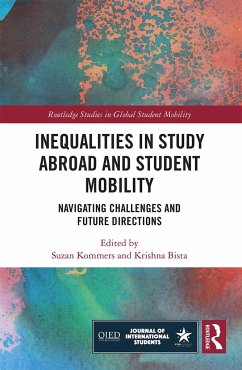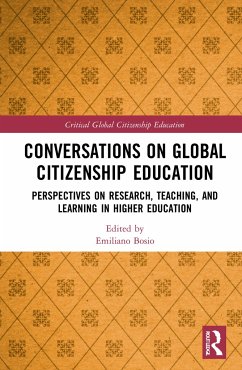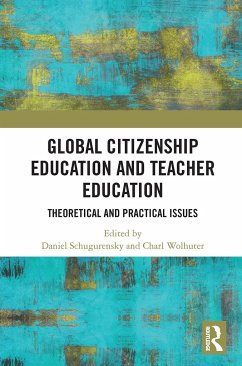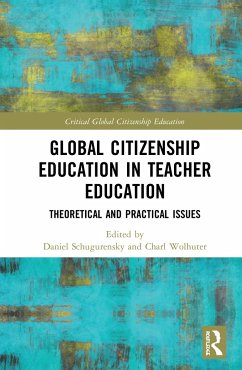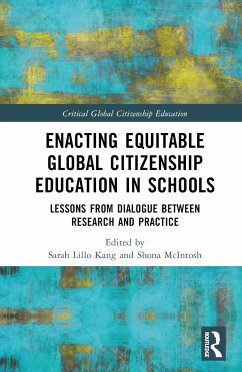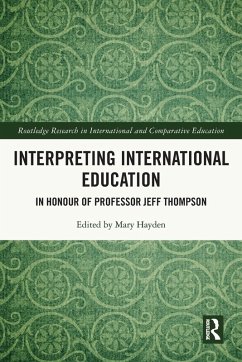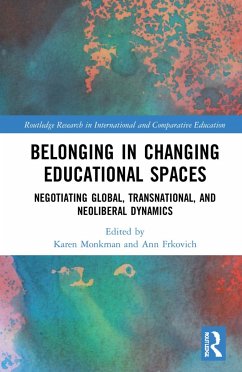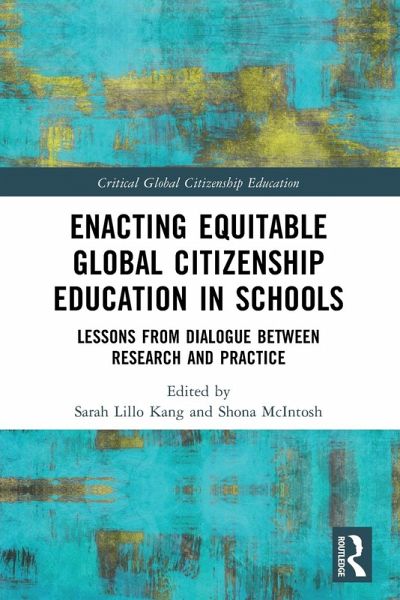
Enacting Equitable Global Citizenship Education in Schools
Lessons from Dialogue between Research and Practice
Herausgegeben: Lillo Kang, Sarah; McIntosh, Shona
Versandkostenfrei!
Versandfertig in 6-10 Tagen
43,99 €
inkl. MwSt.

PAYBACK Punkte
22 °P sammeln!
Offering contributions and vignettes from teachers, school leaders, and scholars, this volume purposefully dismantles practitioner-academic divides to invite dialogue around diverse understandings of global citizenship education (GCE).Recognizing that the field of GCE is often explored and conceptualized by educators and academics in silos, this book confronts this issue by focusing on how schools, educators, and researchers can together support the enactment of GCE in international and national settings. In doing so, issues of westernization, inequality, access, and divergence between GCE pol...
Offering contributions and vignettes from teachers, school leaders, and scholars, this volume purposefully dismantles practitioner-academic divides to invite dialogue around diverse understandings of global citizenship education (GCE).
Recognizing that the field of GCE is often explored and conceptualized by educators and academics in silos, this book confronts this issue by focusing on how schools, educators, and researchers can together support the enactment of GCE in international and national settings. In doing so, issues of westernization, inequality, access, and divergence between GCE policy and practical implementation can be overcome. The novel dialogical format links together theory, practice, and lived experience to create discourses between voices that are rarely connected. Ultimately, this volume offers important insights for those aiming to make equitable GCE a reality in schools worldwide and illustrates the value of collaborative dialogic exchange.
This text will benefit scholars, academics, and students in the fields of international and comparative education, the sociology of education, and citizenship more broadly. Those involved with multicultural education policy and citizenship in the context of political sociology and social policy will also benefit from this volume.
Recognizing that the field of GCE is often explored and conceptualized by educators and academics in silos, this book confronts this issue by focusing on how schools, educators, and researchers can together support the enactment of GCE in international and national settings. In doing so, issues of westernization, inequality, access, and divergence between GCE policy and practical implementation can be overcome. The novel dialogical format links together theory, practice, and lived experience to create discourses between voices that are rarely connected. Ultimately, this volume offers important insights for those aiming to make equitable GCE a reality in schools worldwide and illustrates the value of collaborative dialogic exchange.
This text will benefit scholars, academics, and students in the fields of international and comparative education, the sociology of education, and citizenship more broadly. Those involved with multicultural education policy and citizenship in the context of political sociology and social policy will also benefit from this volume.





